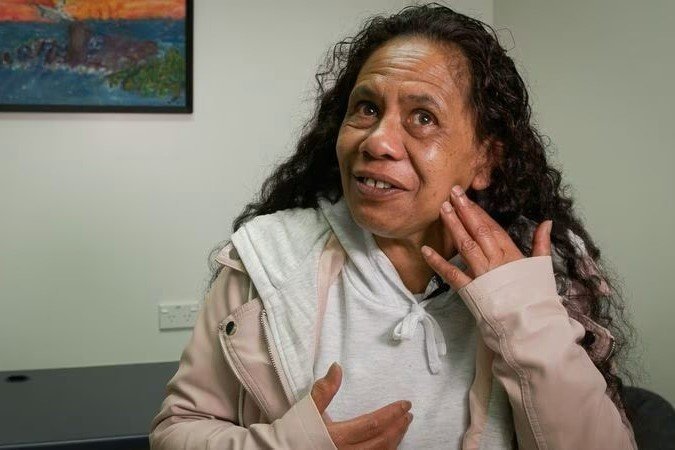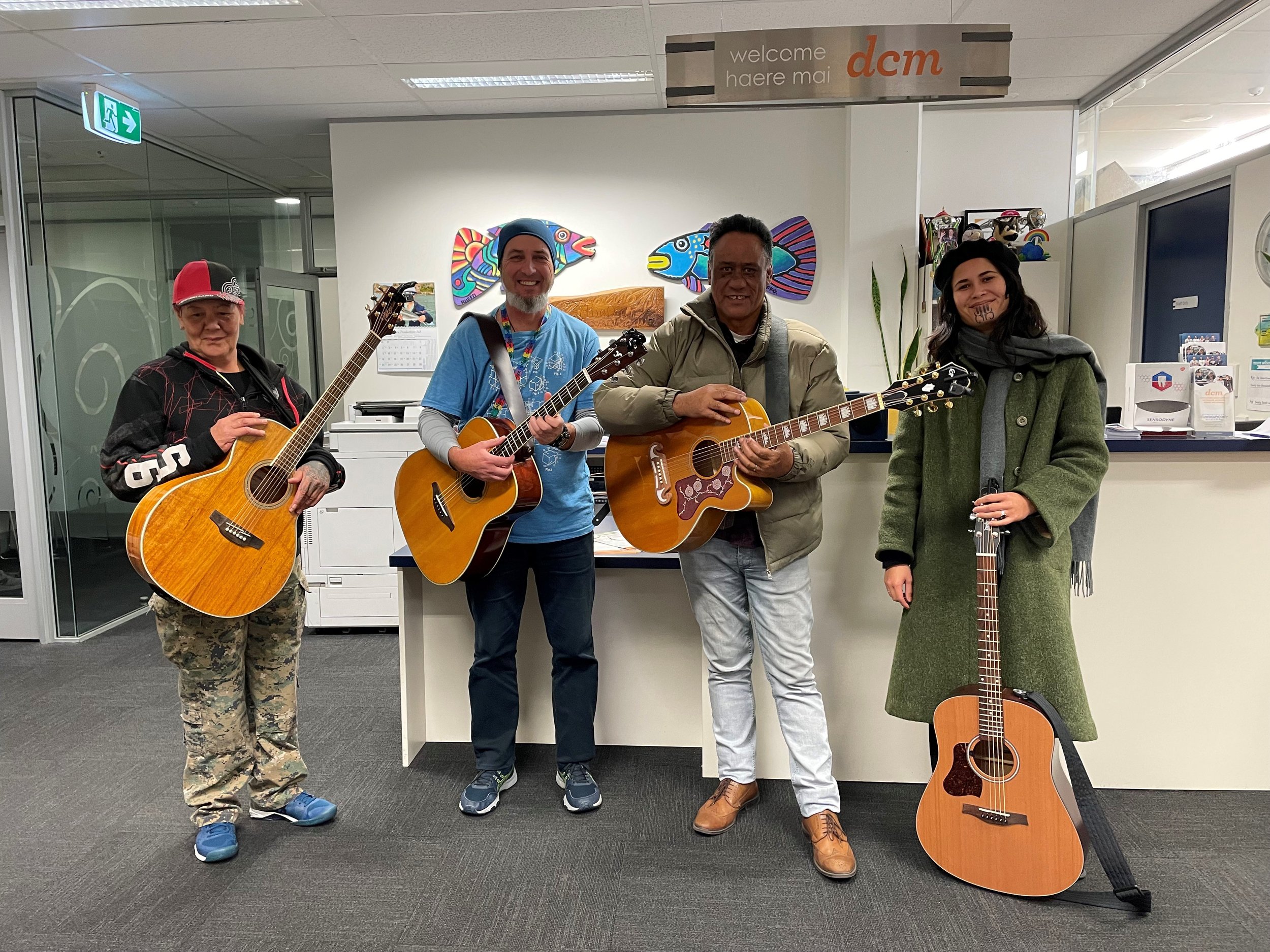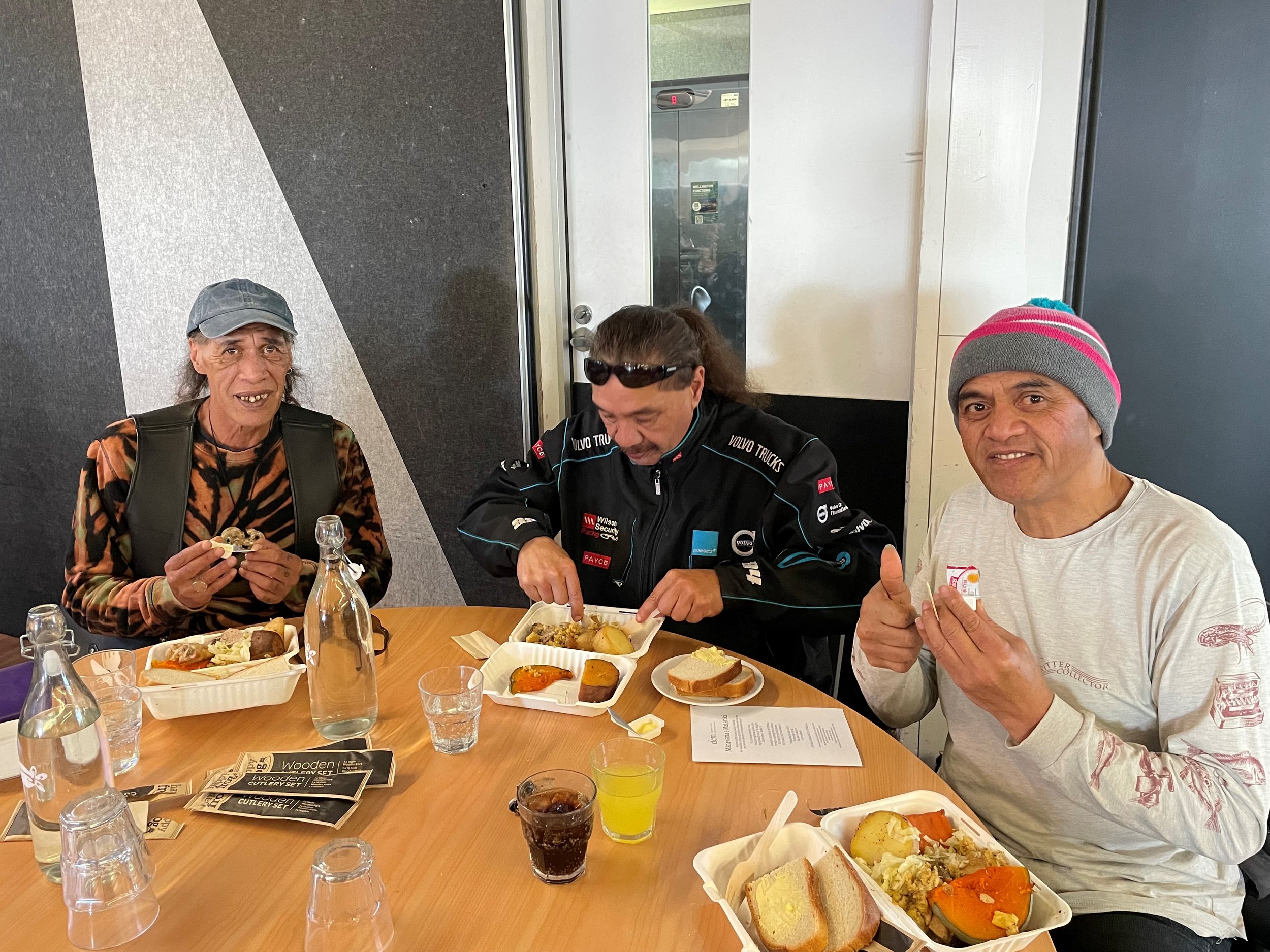Hauora services
Transforming lives at DCM
August 2023
Hauora is a Māori philosophy of health and wellbeing unique to Aotearoa. Here at DCM, we know from experience that when someone’s hauora is not where it should be, it can lead to many problems, including homelessness. And we know, from both experience and from what the data tells us, that homelessness can lead to an early death for many.
Although the mortality rate varies between studies, typically people experiencing homelessness die 15 to 30 years younger than their housed counterparts. A New Zealand hospital-based study looked at risk factors for mortality in a cohort of homeless patients, which included 126 deaths with a median age of death of 52.6 years. Many of the patients had a record of cardiovascular disease and diabetes as well as mental health issues and substance misuse.
Meanwhile, a large new study links loneliness or social isolation to a higher risk of an early death. People who experienced social isolation had a 32% higher risk of dying early from any cause compared with those who weren’t socially isolated. Participants who reported feeling lonely were 14% more likely to die early than those who did not.
Images from DCM’s 50th anniversary photo exhibition – top left photo by John Williams; bottom left photo by Chris Bing; photo at right by Helen Mitchell. Our 50th anniversary was in 2019, but since then two out of the three whānau pictured in these images have passed away.
On top of these alarming figures, while access to adequate medical care is considered a human right, we know that this is not always an option for the whānau we are working with at DCM. This is why we offer a range of hauora services right here on Lukes Lane – where the most marginalised and vulnerable people in our city come. If we can make them feel welcome here, we know that the easily accessible hauora services we have on-site can not only save lives, but start to transform lives, wherever people may be at.
DCM looks to the Meihana Model (link opens PDF) to guide our practice in the provision of hauora services. The model is based on a double-hulled waka travelling through the ocean, impacted by the four winds and ocean currents. There are six core dimensions to the model: whānau (defined as support networks); tinana (physical health and functioning); hinengaro (psychological and emotional wellbeing); wairua (beliefs regarding connectedness and spirituality); taio (the physical environment); and iwi katoa (services and systems that provide support within the hauora environment).
The four winds that can impact the waka are colonisation, racism, marginalisation, and migration. DCM recognises the correlation between these factors and how they have affected the health disparities, inequities and mana of our people. Our team works hard to mitigate and mediate these determinants to improve better health and wellbeing outcomes, reinforcing our organisation’s commitment to achieving goals paved in Te Tiriti o Waitangi.
The ocean currents that support the course when they are harnessed correctly are āhua, tikanga, whānau and whenua. To assist us with steering these elements, we are grounded in our values of Manaakitanga (integrity, trust, sincerity), Kotahitanga (unity, collective action), Pono (walk the talk), Rangatiratanga (leadership, striving for excellence), Hihiritanga (striving for improvement), and Whanaungatanga (identity and belonging).
The Meihana Model highlights the importance of the relationship we have with our whānau, to work alongside them, so we can navigate the most appropriate course together. The following demonstrates how DCM applies this lens through the services we offer.
Music has a big role to play at DCM. Here Tui and Jenny join in waiata with Athena (right).
Whānau
Our whānau come to DCM from widely different backgrounds and experiences. DCM aims to understand the full picture of who our people are. Comprehensive assessments aid us in gathering the whakapapa of their past and present to help us assess their needs and plan for better future outcomes. These assessments often identify a disconnect or collapse that our people have in their relationships with their whakapapa, whether it be with whakapapa whānau (biological) or kaupapa whānau (key support people).
When people don’t have whānau of their own, sometimes it is DCM who fulfil that support network. At DCM, our Te Hāpai service welcomes people who are experiencing homelessness or who are at risk of homelessness, providing a safe space where they can enjoy kai, kōrero and meaningful activities. Whānau will often pop by DCM on weekdays to catch up with one another – and with our staff too. And at the heart of our staff are DCM’s kaiāwhina – peer support workers with lived experience of their own. Who better to connect with people experiencing homelessness than those who have been through it themselves?
Tinana
DCM’s busy hub on Lukes Lane provides a range of hauora services to address people’s physical health and functioning. Leading this mahi is Ali Janes, whose title is Kaiārahi Te Pae Manaaki Tangata – Te Pae Manaaki Tangata means, “The place where people experience manaakitanga”, and is a gateway to DCM's hauora services.
By rolling out the red carpet and helping marginalised people feel welcome, we hope that any barriers they may face in accessing medical care will fall away.
DCM’s Ali (left) with Dr. Frances Ruddiman, a periodontist who specialises in dental surgery and the management of medically complex patients, and Clem, one of DCM’s dental assistants.
Te Aro Health
Te Aro Health Centre has been working with DCM for decades to bring healthcare to the community. Serena, a nurse from Te Aro Health, shares, “Te Aro Health provides primary healthcare services for people who are homeless or in precarious living situations, many of whom have mental health and addiction issues, and who suffer from the social determinants of health. We provide an outreach clinic at DCM three days a week where people can drop in and see us. It’s a great space because people feel comfortable coming here. Accessing the health services is an extension of their feeling comfortable in this space, and they can see us on their own terms.
“I think that the most important work is the collaboration between our services – because our patients have such complex needs, we really depend on having DCM involved. This improves health outcomes like getting them along to secondary specialist appointments they may not otherwise attend. So, we’re often liaising with DCM, at the outreach clinic and in our general work. We make sure the services we provide are appropriate for them – are working for them. Or how can we be flexible to provide something else that meets their needs?”
30 to 45 whānau per week on average visit the Te Aro Health outreach clinics at DCM.
Dental Service
The cost-of-living crisis is affecting us all, and none more so than those who are already vulnerable, where expensive trips to a dentist may need to be sacrificed for something else. Fortunately, DCM provides a free dental service for people experiencing homelessness who are in urgent pain. It’s free thanks to dentists and dental assistants taking time away from private practices to treat our whānau in DCM’s fully equipped dental clinic.
Our dental service is led by Dr. Sophie McKenna who was recently featured on TVNZ, noting how our hauora services empower our whānau. Watch the clip here.
Says Sophie, “Dental pain is all consuming…to take them out of pain allows the head to clear a little. Maybe the advice and support that the DCM key workers are offering them – maybe can be taken on board that little bit better.
“And then it becomes a cycle of everything on the mend for just getting that tooth fixed.”
Hilory Randell had a painful tooth filled at the DCM clinic and is delighted with the results. (Source: 1News.)
Sophie also comments on how different the DCM service is to other dental clinics and the positive nature of the experience for whānau.
“I’ll say, ‘What’s the most important thing that I can help you with today?’ And they look astonished. They are normally told to lie back, open up, and then a health professional gives them a carefully worded lecture about what isn’t being done, how disastrous things are.
“And that’s not what we’re here for. We’re here to make them feel better.”
Physiotherapy
Pain can be a familiar part of life for our whānau. Jeff Dixon, our volunteer physiotherapist comments, “Rough sleeping and lack of adequate housing can make it difficult to sleep in a comfortable position. The lack of sleep and psychological stress can then make pain worse.”
Jeff sees whānau with a host of issues when they come through the doors at DCM, having treated “a variety of injuries – from simple sprained ankles to the results of stab wounds.”
Jeff has been coming to DCM for over four years now, every fortnight, on a Friday. He usually sees a mixture of new patients, and those with long-term conditions who benefit from – to quote one of our whānau – his “magic hands”.
Audiology
Life is better when you can hear well. Our physical health services are growing as Clare, an otolaryngologist (ear, nose, and throat specialist), is coming on board to offer ear wax suction on-site at DCM. This has been a significant unmet need for our people for quite some time.
Clare (centre, with Rebecca and Bronwyn from Te Aro Health), is an ear, nose and throat specialist, also known as an otolaryngologist, who is now able to offer her expertise on-site at DCM thanks to donated ear wax micro suction equipment.
We recently said farewell to Gemma Sheehan, an audiologist who has volunteered at DCM for the past two years. During that time – despite the pandemic – Gemma was able to offer hearing tests and fit our whānau with hearing aids, to truly transform lives.
We find that many of the people working with us at DCM suffer from hearing loss, which often goes back to the root causes of poverty. For example, we know that one of the most common causes of acquired, permanent hearing loss in children is meningitis.
We are looking forward to welcoming a new audiologist to DCM soon. But in the meantime – thank you Gemma for your support of DCM!
Pātaka Kai
DCM has long had a Foodbank, and we acknowledge that kai is another way that we can support someone’s physical health. Sometimes the Foodbank can be an entry point into DCM services – and we can then move beyond kai to try to understand what other supports people may need. But in the meantime, kai supports sustenance, ensuring whānau have access to nutrition to prevent any debilitating of their tinana.
Hinengaro
Mental health and addictions are often co-occurring issues in the lives of our whānau. Our Te Awatea programme looks at addressing both through education and group work.
Reon, whom Jo-Ann has been working with over a long period of time, has benefitted greatly from this service. Jo-Ann shares that one Friday morning she was photocopying material related to Maslow’s Hierarchy of Needs for the Te Awatea session when Reon asked if he could have a copy. Reon came back the following Tuesday and chatted with Jo-Ann about what he had read.
Jo-Ann shares, “I realised that he read the whole thing. He started telling me how he could implement these things in his own life.” She has seen Reon’s decision-making change in a really positive way as a result.
Jo-Ann with Reon – we are so proud of the progress he has made along his journey to wellbeing.
Harm reduction is often the only model that can work for our people, who may have chronic conditions, face barriers from their past, and find it hard to access traditional addiction services. But despite the challenges, the strength of our whānau in seeking help does not go unnoticed by our staff, who, like Jo-Ann, are often taken aback by their commitment to improving their wellbeing.
Rowan, DCM’s Kaiārahi Piki te Ora, comments that there can be a vicious cycle when it comes to the treatment of mental health issues for those who are rough sleeping. She comments that the under-resourcing of the mental health sector in Aotearoa can lead to whānau, “Being on the (mental health) ward for two weeks and then being discharged to the streets. If they are lucky, they will be placed under the TACT team, who come out to find them and give them an injection.”
We find that whānau can often lose touch with their mental health team, resulting in them being placed back on the ward – only to end up on the streets again or in emergency accommodation and evicted if they suffer a relapse.
DCM works in collaboration with Community Mental Health to change these outcomes for whānau. Community Mental Health regularly visits DCM helping people to access the support they need. Rowan shares that at times mental health staff support DCM when a mandatory treatment order is needed. There is a high risk of suicide in those who are experiencing homelessness or who are at risk of homelessness. We know – again, from experience – that receiving mental health support can save someone’s life and prevent tragedy.
Wairua
Māori believe the sneeze of life, the mauri, was breathed into the body to create humankind – and that everyone has a wairua, a living soul. Spiritual health is an important part of someone’s overall hauora, and though it is a broad concept, the practical nurturing of someone’s wairua can involve identifying what brings meaning to their life and finding their ‘why’, or purpose.
DCM acknowledges that understanding the wairua of our whānau connects us better and can bring significant, positive impacts to the engagement we have with our people.
One way that DCM nurtures wairua is through meaningful activities – such as our weekly poetry sessions. Led by John Howell, a retired Presbyterian minister who volunteers at DCM every Tuesday, whānau are given an opportunity to share their creative work and critique others – leading to meaningful conversations.
John Howell (right) leads one of DCM’s poetry sessions. Pastor Joe Serevi (left) of the Salvation Army has also been supporting DCM and our people for many years. Here he joins in the fun.
Our regular carving courses honour traditional Māori carving techniques. As well as connecting whānau to their culture, our staff also take part in these courses so they are able to on-share this taonga of knowledge. Bjay, one of our Toru Atu (Outreach) workers, shares her experience:
“As a Māori woman, coming from a background where our women didn’t carve as part of our culture, getting permission from my elders was a must. This is to show respect for our beliefs, our traditions and our elders, past and present. Whatever the outcome may be, it must be respected. It was an honour to be permitted to carve.
“The ability and experience to learn about the different wood types, strengths and colours was nothing short of amazing. What wood floats to make a waka, what wood they used to make taiaha (traditional weapon). Learning how to respect and use the tools was just as important. To carve something so precious out of a block of wood and shape it into something beautiful was uplifting and left me feeling proud.
“When we do something so traditional, you can’t help but think of your old people who are or were carvers and weavers, and be honoured to be a part of their legacy. Whether the art is contemporary or not, the tikanga will always remain strong, and the tradition will always stay alive.
“It makes you proud to be Māori.”
Bjay (right) with Shylo at one of DCM’s carving sessions.
As an organisation, we open and close our day with karakia and waiata, and whānau are invited to join. DCM staff are spread across the building and the city undertaking different mahi throughout the day. Beginning our day together is important as we ‘settle’ our wairua before opening our doors, and similarly to close our day as we go our separate ways.
Just as music and waiata play an important role in the life of DCM – so does our karakia. Sia, DCM’s Kaiarataki Ringa Rehe (Practice Leader), shares that karakia is important to DCM because “Karakia is of value to whānau. Kotahitanga is established through all of us coming together as one to begin and end the day. And karakia is rewarding on a personal level for many of us. Having that as a part of our regular routine at DCM means that we connect meaningfully with one another beyond the level of what we can see.”
DCM has been able to purchase four new guitars for use at waiata thanks to support from the Nikau Foundation.
Taio
Whānau can be left without a sense of place when they experience homelessness. When all of your time is spent looking for shelter or searching for food, a sense of belonging and safety is not attainable. At DCM we aim to foster an environment that welcomes whānau and helps them to feel as if they have a place where they belong.
DCM sits on the historic site of Te Aro Pā and we honour this connection by offering the same services and supports the Pā provided in the 1800s.
Te Aro Pā provided hospitality too, and at the changing of the seasons – like the peoples of this area used to do – we come together to celebrate Seasonal Kai. Recently, we gathered at Te Wharewaka o Pōneke to enjoy a hāngī thanks to funding by Wellington City Council’s Connected Communities Fund.
Our Seasonal Kai for Matariki provided whānau with an opportunity to take part in an enjoyable event that has become a highlight of the year.
Another tangible way DCM supports taio is through the housing procurement mahi we undertake with our Aro Mai Housing First service. Housing First is all about finding homes that are the right fit for our whānau. We assess their needs and aspirations for a whare where they will thrive. This includes the neighbourhood where they would like to live, access to amenities, number of bedrooms – everything that helps determine that the physical environment will have a positive impact on our people. Because everyone deserves to have a place that they can call home.
Iwi Katoa
Within the health sector, our whānau can sometimes find it hard to access the support they need. For whānau who are Māori, this is especially true with recent research (link opens PDF) showing that 96% of Māori experience racism on a daily basis.
We want to change this for our people by supporting them through their interactions within the health and social services sector to make these positive and empowering experiences. Attitudes within the sector may have changed in recent years, but this does not discount the negative experiences our whānau may have had.
Recently, we welcomed Kitty Truell on behalf of the Public Health Agency to DCM. She comes to Te Hāpai weekly to spend time with whānau, hearing their stories to better inform policy and strategy development within the Ministry of Health around equity of health services.
Ministry of Social Development staff also come to DCM in person to run sessions twice a week where our people can seek assistance with the support of our staff. Accessing an MSD grant for an essential item such as glasses can be life-changing for our whānau who may have difficulties navigating the system.
A hard fact of reality is that without access to appropriate medical care, people’s lives are at risk.
DCM held a memorial service at Wesley Methodist Church recently for those who have passed away. Simon (left) lights candles in memory of the 17 DCM whānau who have passed away over the last two years while Sia (right) reads out their names.
Unfortunately, DCM has seen the full impact of the poor health outcomes associated with homelessness in Aotearoa. Over the last two years, 17 of our whānau have passed away, one as young as 25 years old, with three men known to us who were victims of the Loafers Lodge tragedy.
We all feel the impact of these losses and especially at this time of Matariki, we look back and remember the lives of those we have lost.
But at Matariki, we also look to the future, and we are excited to see the opportunities that lie ahead to transform the lives of our whānau as we travel on our waka together – toward health and wellbeing.
Words by Matthew Mawkes & Miriam Hendry.











